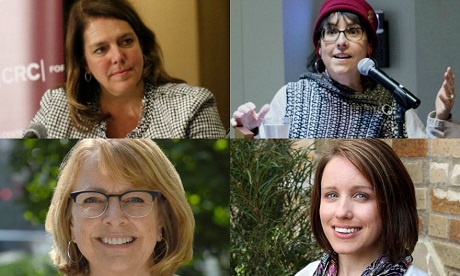While women’s advancement as leaders in the church and society is to be celebrated, there is still much work to do.
Speakers tapped to speak at the second Women of the Church conference next month say with work, churches, businesses and governments can benefit from the gifts and talents of half the human race.
The upcoming conference aims to respond to the signs of the times, says organiser Arlene Montevecchio.
“We want to look at women’s leadership as a source of strength in the Catholic Church and in society as well.”
“The entire future of the global Catholic Church depends on women,” says one speaker, Kerry Robinson.
She will be speaking on “Women, Leadership, Decision-Making, and the Church” at the conference.
“Promoting talented, faith-filled, exemplary leaders is a matter of managerial and moral urgency.”
Tying leadership to ordination hinders the church from making the best decisions and carrying out its mission.
She says more women in decision-making are needed and diverse leadership leads to better decision-making.
Another speaker for the upcoming conference is Joan Rosenhauer.
“Looking at the bigger picture, the leadership of women has been eclipsed by the leadership of men,” she says.
Rosenhauer will speak on “Challenges and Opportunities: The Role of Women Leaders in the Church and Beyond.”
She says clericalism has led to a “warped” understanding of leadership.
“The idea of servant leadership, which is so clearly at the heart of being a disciple of Christ, got lost.”
In her view the current focus on fighting clericalism, in response to sexual abuse and cover-up, has put attention on lay leadership, including women.
Cecilia González-Andrieu will also speak at the conference.
Advocating for women’s leadership is about how to organize to best do the work of the church, she says.
Her conference presentation is entitled “#MineToo: Why Robust Women’s Voices Are Indispensable to the Church.
“The church needs to be organised for the work, not the other way around,” González-Andrieu says.
She thinks rather than focusing on power, the church’s focus should be on looking at how we take care of the vulnerable.
“It is our [women’s] church, too,” she says.
“We are not interlopers. We are not latecomers. We are not peripheral. And if we are the church, we need to do the work of the church.”
The work of the church is about who is hurting, and how does God’s love reach them.
Source
